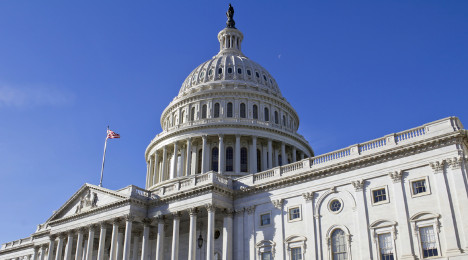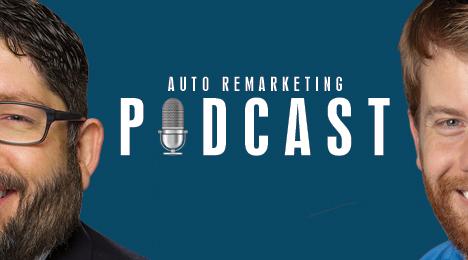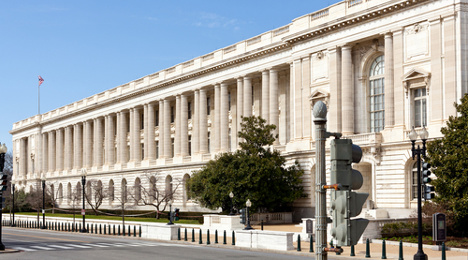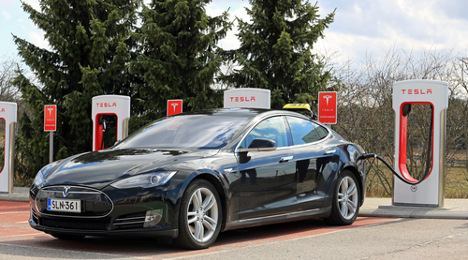Seven Democratic lawmakers are trying again to push legislation that would prohibit the retailing of vehicles with an unfulfilled recall; a plan prompting the two largest dealership associations to reiterate their objections and explain the potential unintended consequences.
Amid all the hubbub over healthcare and the revolving door at the White House, late last week a proposal dubbed the Used Car Safety Recall Repair Act surfaced on Capitol Hill as lawmakers leveraged reports over another potential fatality involving faulty Takata airbags. While both the National Automobile Dealers Association and the National Independent Automotive Dealers Association want to retail safe vehicles, the groups fear this measure would hamstring dealers and impact owners significantly.
“NIADA shares the goal of 100 percent recall completion rates and supports public policies designed to achieve that goal. However, overbroad legislation prohibiting dealers from selling any used motor vehicle with any open recall does not move us toward that goal,” NIADA senior vice president of legal and government affairs Shaun Petersen wrote in a message to Auto Remarketing.
“This legislation treats all recalls the same — whether safety related or not — and does nothing to manufacture the parts necessary to repair recalled vehicles or entice owners to take a recalled vehicle to a franchise dealership for repair,” Petersen continued. “But most important, it harms consumers by diminishing the trade-in value of their recalled vehicles by an average of $1,210 — and often upward of $5,000 — and would likely force dealerships to not take those vehicles in trade at all.
“Requiring dealers to ground vehicles for any recall does not justify that economic loss, particularly when the National Highway Traffic Safety Administration admits not every vehicle with an open recall needs to be grounded immediately,” he went on to say. “NIADA stands ready and willing to work with members of Congress to find common-sense solutions to improve recall completion rates. However, this legislation — which was rejected numerous times by the previous Congress — is not the answer.”
Led by Sen. Richard Blumenthal of Connecticut and Sen. Edward Markey of Massachusetts along with Rep. Jan Schakowsky of Illinois, supporters of the Used Car Safety Recall Repair Act fear any owner of vehicle under recall will suffer the same tragic fate as the dozen individuals fatally wounded by faulty Takata airbags.
“This commonsense bill will protect used car buyers from driving a ticking time bomb off the lot and onto our roads,” Blumenthal said.
Schakowsky added, “It’s already illegal to sell a new car or offer for rent a car under recall. Our bill will give used car buyers the simple assurance that known defects have been fixed before you drive the car off the lot.”
NADA spokesman Jared Allen confirmed many of the points Petersen raised, including how much trade-in values can suffer.
“When recalled vehicles awaiting repair parts — including vehicles that the engineering experts at the NHTSA and the automakers have determined are acceptable for consumers to drive — can't be sold, the market instantly devalues those vehicles, resulting in a massive trade-in tax of, on average, $1,210 per vehicle, according to J.D. Power,” Allen said in a message to Auto Remarketing.
“We’re not in favor of anything that would create a trade-in tax because it’s unfair to ask consumers to pay for a manufacturer’s mistake,” Allen went on to say. “Additionally, imposing a $1,210 trade-in tax could lead to fewer, not more, recalled vehicles getting repaired, and we don’t believe a reduction in the recall completion rate is a good policy outcome for consumers or anyone else.”
The legislation introduced in the House is also co-sponsored by Rep. Frank Pallone Jr. of New Jersey, Rep. Bobby Rush of Illinois, Rep. G.K. Butterfield of North Carolina and Rep. Doris Matsui of California.
Donlen recently announced that it has partnered with J. J. Keller to offer an electronic logging device (ELD) solution for fleets that will ensure they are fully compliant with the Federal Motor Carrier Safety Administration's (FMCSA) ELD rule.
Most motor carriers and drivers are required to use ELDs to record their hours of service by Dec. 18.
This partnership allows Donlen to offer customers a compliant ELD solution that is both simple and flexible for fleets, the company said.
“Donlen partnered with J. J. Keller because they're one of the top names in the industry for compliance,” said Donlen director of licensing services Brad Kacsh.
“Together we’re integrating hours of service data from their electronic logging device (ELD) into Donlen’s DriverPoint Telematics technology. This provides enhanced visibility and real-time access to HOS logs to ensure consistent compliance with FMCSA regulations,” Kacsh said.
The integrated data collected from J. J. Keller ELDs into DriverPoint Telematics provides enhanced transparency and accuracy for hours of service logs, according to Donlen.
J. J. Keller ELDs are compatible with all vehicle classes (1-8) and can be installed in less than 10 minutes.
Additionally, the solution is backed by customer support services and compatible with Android iPhone and iPad devices.
For additional information regarding the FMCSA ELD regulations and Donlen’s ELD solution, visit donlen.com/blog/electronic-logging-device-regulations.
While the Congressional clash over healthcare is generating plenty of headlines, the American International Automobile Dealers Association applauded this week’s actions by the so-called “Big Six” — a group of lawmakers and administration officials working together to establish a road map for tax reform — who have officially abandoned a potential border adjustment tax (BAT).
House Speaker Paul Ryan, Senate Majority Leader Mitch McConnell, House Ways and Means Committee Chairman Kevin Brady, Senate Finance Committee Chairman Orrin Hatch, Treasury Secretary Steven Mnuchin and White House National Economic Council Director Gary Cohn jointly released a statement of principles reaffirming their commitment to passing substantive tax reform for all Americans while finally rejecting the border adjustment tax (BAT) proposal that would have added a 20 percent tax on all goods and services imported into the United States.
“The framework released today by Congress and the Trump administration places the tax reform train squarely back on its tracks,” AIADA president Cody Lusk said. “The border adjustment tax would have driven up costs on everyday goods and put Americans out of work.
“Now that it’s off the table, and the business community is no longer divided by this issue, we can get back to work on supporting this important legislation,” Lusk continued.
AIADA, whose members employ 577,000 Americans and accounted for 59 percent of all U.S. retail vehicle sales last year, insisted that the association would have been uniquely impact by a BAT. Because no vehicles are made with 100 percent American-made parts, the BAT would have added an average of $2,000 to the cost of all new vehicles sold in the United States, regardless of their origin.
The association emphasized the decision by the White House and Congress to listen to the concerns of consumer and business groups — including AIADA — and scrap the BAT allows dealers to throw their support behind a tax reform plan that “promotes economic growth, rewards entrepreneurship, and creates a level playing field for all Americans.”
A 2017 study by the Center for Automotive Research (CAR) estimates that U.S. light vehicle sales would immediately fall by 5.6 percent following implementation of a border adjustment tax, resulting in a $34.6 billion overall cost to U.S. consumers.
For more information on how a border adjustment tax would have impacted dealers, and how they have spent much of this year battling it, visit www.aiada.org/bat.
The newest episode features a visit with one of the industry’s experts on compliance — Steve Levine — who is chief legal and compliance officer at Ignite Consulting Partners.
Nick and Steve discuss how the regulatory world has intensified since the arrival of the Consumer Financial Protection Bureau.
Plus, they offer suggestions so dealerships easily can set a compliance plan in motion that can meet both state and federal mandates without completely eroding the store’s finances.
Download and subscribe to the Auto Remarketing Podcast on iTunes or on Google Play.
You can also listen to the latest episode in the window below.
All episodes can be found on our Soundcloud page or at www.autoremarketing.com/ar-podcast.
Recall Masters has a new partnership to integrate its real-time vehicle recall lookup solution into Record360’s vehicle condition reporting app. And this collaboration aims to help dealers and rental agencies avoid claims disputes when putting drivers in vehicles during recalls.
The enhanced transparency and real-time recall updates are brought by the integration, following new legislation concerning vehicle safety recalls passed just last summer.
Lawmakers addressed rental car agencies need to fix any and all open safety defects before renting out vehicles to customers.
The legislation established a fine of $5,000 if a consumer is put into a rental or loaner vehicle with an outstanding recall, Recall Masters explained in a news release announcing the partnership.
“Countless damage disputes impact relationships, customer satisfaction, and cause negative reviews,” said Recall Masters president Chris Miller. “Vehicle condition and claims management processes is dependent on paper or low-fidelity digital reporting and Record360 fills the gap with a modern solution.”
Dealerships and car rental agencies can automate their asset management by digitizing vehicle conditions reviews via Record360’s condition reporting software.
The software is designed to help prevent customers being put into a rental or loaner vehicle with an existing recall, as well as end customers’ ability to claim they did not cause damage to a loaner or rental.
“Our integration with Record360 ensures that the user is informed of any open recall in real-time while the initial inspection is done. This helps build trusting relationships between automotive dealers or car rental agencies and their customers,” added Miller.
Franchise Services of North America (FSNA) — which among its subsidiaries includes U-Save Car & Truck Rental, U-Save Car Sales, Auto Rental Resource Center (ARRC), Xpress Rent A Car, Sonoran National Insurance Group and Peakstone Financial Services — filed for Chapter 11 bankruptcy protection this week.
The company said it made the move in the federal bankruptcy court located in Mississippi in order to best preserve the value of its assets for the benefit of creditors and shareholders.
FSNA is the holding company for operating entities that own several car rental brands whose associated independent operators have more than 650 locations across the United States. The company anticipates that these subsidiaries will continue to operate their businesses in the normal course during the pendency of the Chapter 11 case.
Officials added no layoffs are anticipated at FSNA or any of its subsidiaries.
FSNA explained its decision to seek bankruptcy protection was necessitated by several factors, including liquidity issues associated with expenses incurred in pending litigation by and against its former financial advisor, Macquarie Capital (USA) and two Macquarie employees who also served as directors of the company, as well as other legacy claims against the company.
The company's litigation expenses relate to the FSNA’s acquisition of Simply Wheelz —doing business as Advantage Rent A Car — which was led by Macquarie and its affiliates. The company said it also remains impaired by potential claims that are stemming from the Advantage acquisition.
“The expenses and claims arising from the failed acquisition and, in particular, those fees and expenses associated with these actions pending with Macquarie and its associates in multiple jurisdictions have severely impacted the company’s liquidity, strained the company’s ability to operate, and necessitated that the company seek bankruptcy protection,” FSNA said.
The National Auto Auction Association held a mock auction on Capitol Hill to interactively educate policymakers about the wholesale auction business and the role it plays in both the auto industry and the U.S. economy.
Staffers and legislative aides of the Senate Automotive Caucus joined NAAA in the Russell Senate Office Building on June 16, where NAAA first presented a 30-minute video depicting the entire auction process, such as vehicles arriving via transport truck, inspection, check-in, repair, painting and reconditioning and sales day bidding.
For the mock auction, NAAA brought its audience an auctioneer, eight colorful quarter-scale cutouts of vehicles and stacks of ‘NAAA bucks.’
"We call it 'Wholesale Auto Auctions 101' because we want to give our lawmakers a solid understanding of how auctions operate and how integral they are to the industry," NAAA operations manager and legislative director Tricia Heon said in a news release. "Promoting and protecting the interests of our members and the industry requires proactively educating as well as advocating."
Senate Automotive Caucus chairman Sen. Rob Portman of Ohio arranged the meeting with NAAA.
The caucus provides a bipartisan forum for senators to exchange ideas and influence policy concerning issues that impact the auto industry, according to NAAA.
In attendance were staff from the offices of Sen. Sherrod Brown of Ohio, Sen. Joe Donnelly of Indiana, Sen. Al Franken of Minnesota, Sen. Patty Murray of Washington, Sen. James Risch of Idaho, and Sen. Luther Strange of Alabama.
U.S. Rep. Pat Tiberi of Ohio and chairman of the congressional Joint Economic Committee also sent representatives.
Following the mock auction, NAAA hosted a reception where staff had an opportunity to meet with NAAA members such as Independent Auction Group co-chair Charlotte Pyle and members from ADESA and Cox Automotive.
ADESA’s Paul Lips, Heather Greenawald, Elizabeth Murphy and NAAA President-elect Warren Clauss participated. And Cox Automotive members in attendance included Craig Amelung and Karyn Wrye.
"I was impressed with the genuine interest and enthusiasm shown by those who attended as well as by the support of the auto caucus," said Pyle, who served as ringman for the mock auction’s auctioneer John Nicholls. "It's rewarding to educate our lawmakers in Washington about our business."
Nicholls is the 2015 NAAA Auctioneer of the Year and president of the Nicholls Auction Marketing Group.
NAAA chief executive officer Frank Hackett, along with Heon and Sante Esposito, president of lobbying firm Key Advocates accompanied the NAAA member delegation for the Capitol Hill visit.
"We received a lot of positive feedback about our program and about returning to do another in the future," Hackett said.
Less than 13 miles from Auto Remarketing’s headquarters in North Carolina, Tesla appeared to have scored at least a partial victory in the ongoing fight over its retail model.
The News & Observer of Raleigh reported a bill Wednesday in the North Carolina General Assembly that the newspaper said would permit dealerships owned by companies like Tesla, albeit with multiple stipulations that are outlined here in the N&O piece.
Then mid-Thursday afternoon, local TV station WRAL reports the legislation has temporarily been iced.
This back-and-forth in the Tar Heel State is emblematic of Tesla’s saga on the national level, where navigating the patchwork of state-by-state laws can make the legislative battle seem more like a game of Whac-A-Mole.
“I feel like they seem to make progress in one area, but then they’ll also meet the same or increasing challenges that they’ve been meeting in other areas,” said Karl Brauer, executive publisher of Kelley Blue Book and Autotrader.
Auto Remarketing talked to Brauer and other analysts on Thursday, prior to learning about the suspension of the bill.
But his sentiments are apropos for the one-step-forward, two-back nature of this fight, which has included recent legislative setbacks in places like Texas and Michigan.
“It seems like they’ll make progress in one state, but have as many or more challenges than ever in another state,” Brauer said by phone, “I don’t get the sense that there’s this trend that they’re slowly winning this larger long-term battle against the traditional dealer bodies out there that are franchised versus manufacturer-owned.”
However, Edmunds executive director of strategic analytics Jessica Caldwell told Auto Remarketing that even with the state-by-state wins and losses for Tesla, the company’s store count is expanding.
“So, clearly they’re able to work around the system,” she said in a phone interview.
And in a statement from a Tesla spokesperson provided to Auto Remarketing, the company offered a seemingly positive outlook on its situation in North Carolina.
“We continue to push to expand our locations in North Carolina and advocate for consumers who want the option to buy electric vehicles throughout the state,” the Tesla spokesperson said in the statement.
“In the meantime, we continue to serve our customers in North Carolina at our Raleigh and Charlotte facilities, while we work to expand and grow these operations through the legislature and the courts.”
Advantages to Tesla retail stores
So what’s the plus-side to a direct-to-consumer manufacturer having a localized store presence, anyway? For one, it’s about the control, says Brauer.
“I think there’s a desire to just have control over every aspect, because everything from the presentation of the vehicles to the sales process and the prices charged can be much more tightly controlled and regulated in the traditional sense,” he said.
In the traditional model, of course, the ownership of the car goes from manufacturer to dealer, giving the OEM less control after the fact, he said.
“And there’s always guidelines and aspects of being a given franchised dealer that you’re supposed to follow, but it’s very tough to enforce those in a traditional model,” Brauer said. “And I think Tesla just didn’t want to have that as part of their business model. They wanted to have total control and be able to rigidly control prices, presentation, even dealer appearance, policies, everything. “
It’s also a matter of brand exposure, Caldwell said.
At least at this point, you’re not going to see a Tesla commercial on primetime NBC, she said.
So particularly in the early stages, it was important for Tesla to have a ground game.
The company turned to with retail centers in heavily trafficked areas like malls where they could reach crowds of consumers, Caldwell said.
Not to mention, she adds, having local retail centers allows Tesla to teach consumers about their product and answer any questions they might have. At a traditional dealership, where a consumer is already familiar with the brand and product, it’s typically more sales-focused than education-focused.
“You probably already know what a Ford F-150 is when you walk in. You’re not necessarily asking the questions,” she said.
While some of that has brand exposure necessity has died down given Tesla’s rise in awareness, that initial effort was crucial to answering the “unknowns,” she said.
“Being where their customers are and being able to answer the questions for a new brand like Tesla that’s not really quite established, was probably the key thing,” Caldwell said. “And also, when you’re in a crowded place, you just get a lot more brand exposure.”
Future of Tesla stores
Of course, Tesla has service centers as well as retail centers, Caldwell points out. And as she mentioned earlier, the store count is climbing. But will there be a day/time when Tesla stores are as common as even some of the niche automakers?
Caldwell says it’s “possible” that Tesla could approach niche-brand type of dealer count. However, that will likely hinge on the success of the Model 3 as well as Tesla’s next launch and its potential volumes.
“It’s hard to see them winning this whole dealership fight, but I think as they expand into the Model 3, they’re going to need more facilities in terms of inventory,” Caldwell said.
A major factor in Tesla preferring not to have dealerships from the get-go was that their product was designed to be “custom-built, low-volume,” she said, versus a traditional dealership that might have scores or even hundreds of the same model on the lot for any customer to come and buy.
“But I imagine as they go mass market, that component is going to change. They’re going to need more inventory. And even though they say that EVs don’t need as much service and repair, they’re going to need some service and some repairs,” Caldwell said. “So, I think that that will naturally expand some of their facilities.”
‘Why couldn’t (dealers) compete?’
Kevin Root, who is the founding partner at Root & Associates, used to sell cars in the retail world. His background in the auto industry includes time with companies like Cobalt/CDK Global, Dealer.com and DrivingSales. He said he’s quite fond of auto dealers, who have been a part of his professional life for some time.
“But when I look at, sort of, this battle that’s been raging on,” he said in a phone interview, “and you’ve got this entity that’s wanting to simply sell their product directly to the consumer, and we’ve got these laws that have been in place for a long, long, long time.
“And I believe that those laws were probably created to protect the dealers in an era where things were maybe different,” Root said. “As a guy that relies on and provides product research, consumer research to a lot of companies in the industry, at the end of the day, where I come down on this is, shouldn’t we just do what’s right for the consumer?
“Yes, that could be at-risk of some dealers,” he said. “But what’s to say that if a dealer is providing a really good experience, why couldn’t they compete?”
Root gives the analogy of Apple. Imagine if that company could not sell its products directly to consumers, where to buy a one of their products required the customer to go to an Apple store, he said.
Folks have gotten accustomed to the Apple store concept of working with “product specialists” who are experts in the devices and aim to trouble-shoot.
“When Apple rolled out those Apple stores, it was a big change in the retailing landscape and environment,” he said. “And many people would say a change for the better. A lot of companies have adopted that model, including some of the automotive retailers. Because Apple did the research, they understood what consumers wanted and how they wanted to buy and interact, and have their products serviced.
“If I come back to the car business, and I think about this in those same terms, Tesla has changed the model. Is there are a lot of people other than dealers that would say that it’s a bad model? Many of them would say they’re very much in-tune, in-step with how consumers want to buy,” Root said. “And I guess my question is, is that a bad thing? And if the answer was, it is a bad thing, then they wouldn’t be around, which means they wouldn’t be competitive.
“Dealers are really smart people. And they’re really competitive,” he said “And so I guess my whole point would be, let’s quite hiding behind these protection laws and go back to competing on customer experience. And if we do that, I don’t think we’ve got anything to worry about.”
It should be noted that, according to The News & Observer story from Wednesday, the North Carolina Automobile Dealers Association had applauded the aformentioned legislation. As of Friday, the National Automobile Dealers Association had not provided comments on the matter to Auto Remarketing.
The American International Automobile Dealers Association went to the White House this week to participate in a meeting on tax reform with White House National Economic Council Director Gary Cohn and other auto industry leaders.
Leading AIADA’s charge were president Cody Lusk, vice president of government relations Rachel Robinson and vice chairman and California dealer Howard Hakes, who all supported the administration's efforts to produce a tax reform plan that promotes economic growth, rewards entrepreneurship and creates a level playing field for all Americans.
"Today's meeting was representative of how deeply the Trump administration cares about American businesses, large and small, and wants to see us succeed," Hakes said. "A tax reform bill that allows business owners to invest in their communities and hire new employees will benefit all Americans. It's refreshing to sit at a table with leaders who 'get it' and are ready to take action.”
During the meeting, attendees discussed a number of aspects of a potential tax reform bill, including the contentious 20 percent Border Adjustment Tax (BAT) that has been proposed in the House of Representatives and is opposed by AIADA.
"America's international nameplate dealers fully support federal tax reform but remain deeply opposed to the BAT provision, which would drive up the cost of every vehicle on their lots by an average of $2,000 per vehicle,” Lusk said.
“We were grateful to have an opportunity to share our perspective with the White House, and we are optimistic that a well-crafted tax reform bill, minus the BAT, can make its way through Congress and to the president’s desk for his signature,” Lusk continued.
A 2017 study by the Center for Automotive Research (CAR) estimates that U.S. light vehicle sales would immediately fall by 5.6 percent following implementation of a border adjustment tax, resulting in a $34.6 billion overall cost to U.S. consumers.
For more information on how a border adjustment tax would impact America’s international nameplate dealers, visit www.aiada.org/bat.
Remember 1991? The Gulf War intensified. Then-Arkansas Gov. Bill Clinton began his trek to the White House and the Dow Jones Industrial Average closed above 3,000 for the first time.
Fast forward 26 years and the Middle East remains unsettled, Hillary Clinton missed on her second attempt at the presidency and the stock market now sits above 21,000.
And the Telephone Consumer Protection Act (TCPA) remains as it was written back in 1991 despite the evolution of smartphones, auto dialers and more technology.
The American Financial Services Association reached out to the new chairman Federal Communications Commission, Ajit Pai, in an effort to stimulate a revamp of the TCPA to aid in collections and beyond.
In a letter to Pai delivered earlier this spring, AFSA executive vice president Bill Himpler outlined a list of recommendations on how the TCPA could be modified to help businesses communicate better with their customers in light of common technology so readily available in the 21st century.
Among some of the main problems with how the TCPA currently is written, AFSA highlighted three main points in its message to the head of the FCC, touching on:
— Auto-dialers: Enacted in 1991, AFSA stated the TCPA was intended to prevent consumers from being harassed by telemarketers using auto-dialing equipment to randomly contact individuals with unwanted and unsolicited calls. In 2015, the FCC held that any system that has the “capacity” to store and dial telephone numbers is an autodialer. Therefore, all modern telephones are arguably auto-dialers, in AFSA’s view.
— Reassigned numbers: AFSA acknowledged businesses regularly obtain “prior express consent” to contact their customers upon initiation of a customer relationship. Even so, according to the FCC, when a business calls a cell phone number without knowledge that the number has been reassigned, it can make only one call to the old number before subsequent calls violate the TCPA, according to AFSA.
— Consent: AFSA stated a business can no longer safely rely on consent because a number may change hands without warning. In addition, a customer may revoke consent by “any reasonable means.” In fairness, AFSA said the FCC should provide for a reasonable standard, such as requiring revocation in writing.
“Simplifying the TCPA regulations will bring back these jobs and create additional opportunities. We hope that the FCC’s regulatory task force focuses on the benefits to reviewing and modifying the current TCPA regulations and we are happy to provide any assistance that might be useful,” Himpler wrote.












